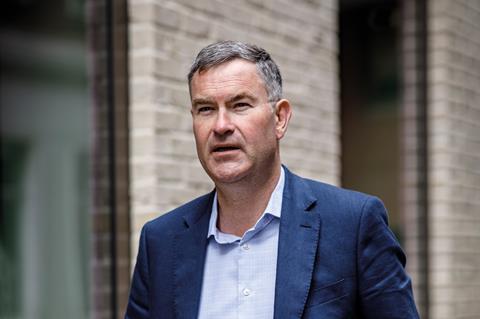The time has come for an 'honest conversation' about who is sent to prison and for how long, former lord chancellor David Gauke declared today, publishing a study that shows a 'tough on crime' narrative adopted by successive governments has pushed the justice system to the brink of collapse.
Gauke, tasked by lord chancellor Shabana Mahmood to reevaluate the sentencing framework to end the prison population crisis once and for all, is not due to deliver his recommendations for another few weeks.
Today, he published a report signalling that the prisons crisis is down to successive governments focusing on a ‘tough on crime’ agenda when they should have been focusing on effective non-custodial ways to cut reoffending.

Gauke said: ‘Last year we were confronted with the consequences of decades of haphazard policy making and underinvestment in the criminal justice system - bringing it to the brink of collapse. For too long politicians have operated in a vacuum, increasing sentencing for individual crimes without considering the knock-on impact on the wider system. It is time to accept this does not deliver justice for victims, it fails them.’
According to the study, the Criminal Justice Act 1991 marked the beginning of a shift in the media and political narrative, which has led to each government of the day facing pressure to be ‘tougher on crime’. Legislative changes such as mandatory minimum sentences, made in response to tragic events, have driven sentence inflation and led to inconsistencies in the sentencing framework.
Analysis shows the reoffending rate for offenders leaving custody is 37.2% overall, rising to 56.9% for those on short sentences.
Gauke, who is currently sifting through responses to his call for evidence, said it was time for an ‘honest conversation about who we send to prison, and for how long’.
Law Society president Richard Atkinson said: 'We agree with the findings that the drivers for longer prison sentences have been the many decisions made by successive governments and a “tough on crime” narrative that has focused primarily on punishment which includes incarceration and longer sentences. There has also been an underinvestment in probation and other alternatives that can provide rehabilitation and reduce reoffending.'
This article is now closed for comment.



























13 Readers' comments